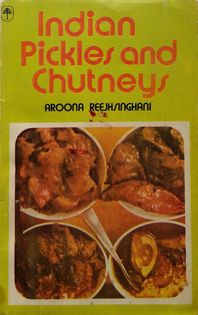
Indian Pickles and Chutneys
Most honest and authentic collections of regional recipes available in English. I am eternally turning to these recipes for inspiration because the flavors are real.
Advertisement

Food historian, author, gardener, epicure
https://www.williamwoysweaverepicurewithhoe.com/
Most honest and authentic collections of regional recipes available in English. I am eternally turning to these recipes for inspiration because the flavors are real.
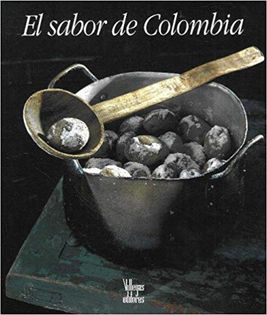
Beautifully illustrated ingredient-by-ingredient guide to the classic cuisine of Colombia. A model cookbook for treating cuisines in other cultures, but also a “deep immersion” experience in a major South American cuisine.
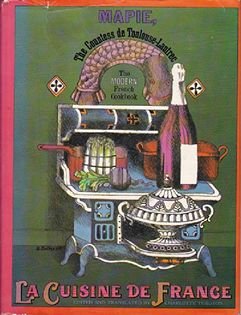
Written by an elegant old lady with large hat, gloves, and powdered face who autographed my copy of her book at a New York book signing and predicted I would “cook well.” She was my teenage goddess. I read her food columns (in French) in Realités. She made me realize I possessed a gift and for that reason, I owe her a bouquet of roses when we meet in Paradise. Merci Mapie!! I use your recipes all the time, or reinvent them my own way.
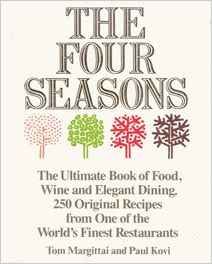
As Patrick Kuh pointed out in The Last Days of Haute Cuisine, the Four Seasons launched a revolution in American cuisine which turned the direction of our national cookery away from France with a new focus on an American style of cooking. That revolution is still playing out today, so this cookbook must assume its place as a turning point, at least in terms of American culinary history.
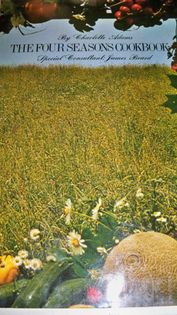
As Patrick Kuh pointed out in The Last Days of Haute Cuisine, the Four Seasons launched a revolution in American cuisine which turned the direction of our national cookery away from France with a new focus on an American style of cooking. That revolution is still playing out today, so this cookbook must assume its place as a turning point, at least in terms of American culinary history.
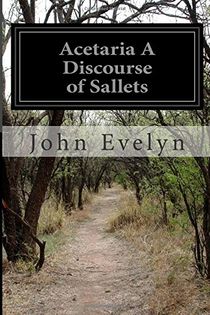
One of the most unusual cookbooks written in the seventeenth century, it has stood the test of time and has given inspiration to both gardeners and cooks, especially with the rise of vegetarianism. It is a literary bijou to which I turn for recipes and fresh ideas every time I start a new book. The late Jane Grigson was also an admirer of Evelyn and we often traded notes and insights inspired by this book.
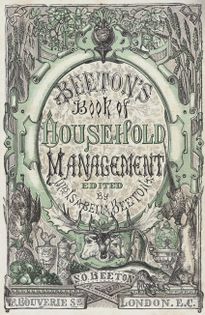
Any edition of Mrs. Beeton will do because her book became a metaphor for the cuisine of the British Empire and was perhaps the first truly international cookbook in the English-speaking world. I do not cook from Mrs. Beeton yet I am eternally amazed by the way in which her book grew by accretion into an imperial guide for a way of life now forgotten. She is iconic for the food of the Victorian Era.
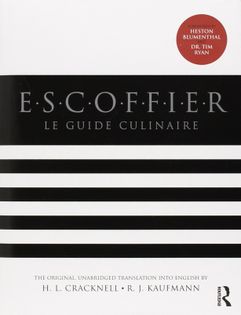
While his sun has set, in his heyday Escoffier became a guiding light in the expression of haute cuisine as practiced on an international scale. He canonized traditional French cookery thus his influence is undeniable, yet it was also his highly structuralized and fussy mode of cooking that spawned a reaction first with Nouvelle Cuisine and now with farm-to-table, “natural” cuisine, and a new search for authenticity. I do not cook from Escoffier, but I have a first edition (in English) of his cookbook just in case I want to look up the old French way of making a dish. Otherwise his food is too much smothered in sauces.
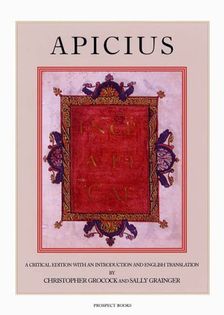
I cite here the edited Latin edition by Mary Ella Milham mostly because it is the original text thus avoiding the controversies of other edited or translated editions. While the cookery book attributed to Apicius is in fact a compilation of several hands from several periods with no one particular author responsible for the total work, this is the most important cookbook surviving from Antiquity and thus it remains a source of study for insights into the cuisine of the ancient Greeks and Romans. It had a profound influence on the Renaissance and remains one of the great culinary classics of world culture.
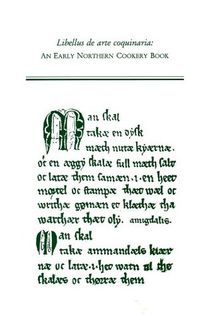
In its recently published form (2001) this medieval text has been mistakenly attributed to Northern Europe. In fact, it was compiled in Cyprus sometime before 1300 and is the oldest surviving cookbook from the Middle Ages. As I will demonstrate in my new edition of this work (not yet published), the text represents a collage of Byzantine and indigenous Franco-Cypriot dishes. Since it was translated into several languages, including Danish and German, this text was perhaps the most influential cookbook during the Middle Ages.
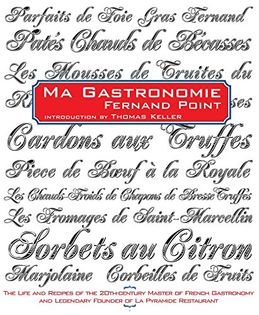
Any of Point’s works would belong here. For me he is an inspiration not only as a great chef, but also as a philosophical cook with unique flair and intellect. He represents a branch of culinary literature where cuisine as art and food as thought meld into one overarching philosophy. I think the world hungers for more writing like his.
Advertisement
